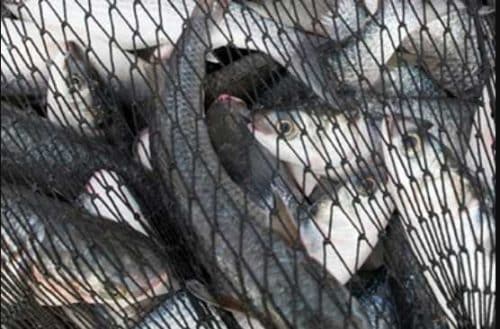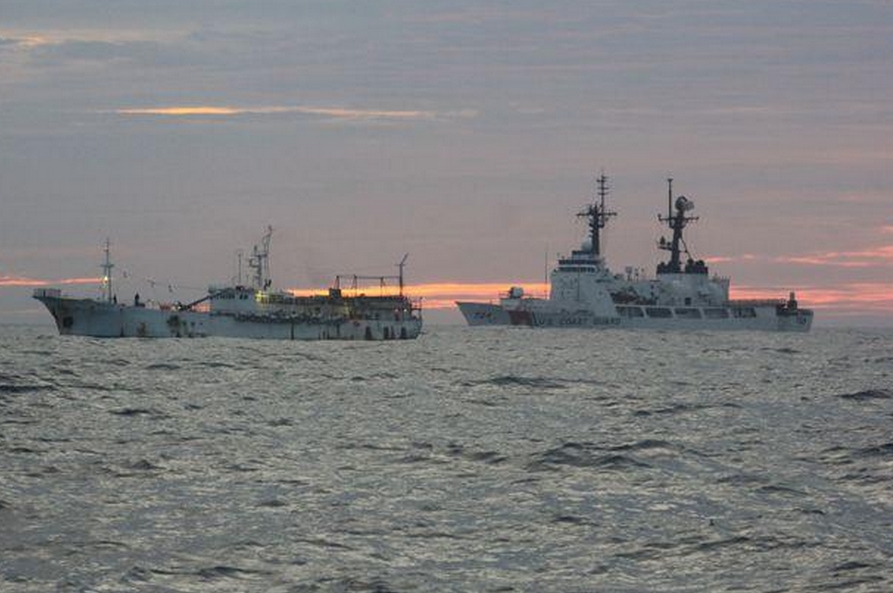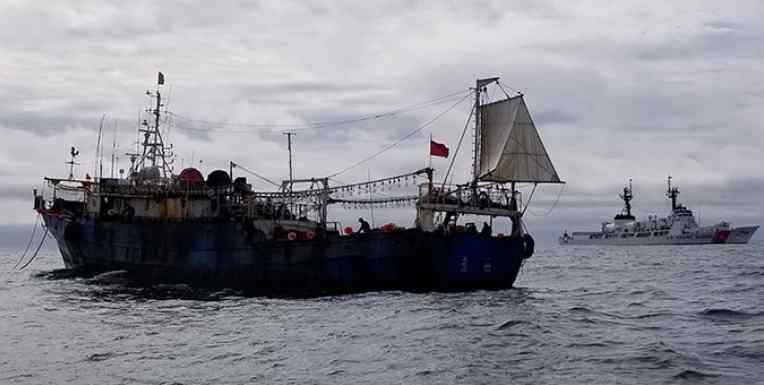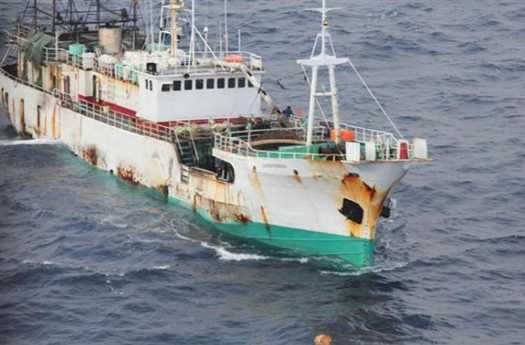To send a strong message to pirate fishing vessels engaging in Illegal, Unreported and Unregulated fishing (IUU), U.S. Sen. Mark Begich and Rep. Don Young have introduced legislation giving NOAA and the Coast Guard a variety of options for disposing of such ships including sinking them in live-fire training exercises.
The move comes after an incident last month when the Coast Guard seized the Bangun Perkasa, a rat-infested ship that was illegally fishing 2,600 miles southwest of Kodiak with more than 10 miles of illegal driftnets on board. At the time, Sen. Begich urged the Coast Guard to sink the ship, but the service did not have the resources to decontaminate the vessel to make it safe to sink.
Because pirate fishing vessels are old and poorly maintained, Senator Begich and Representative Young are concerned that, if they are auctioned off, they will just end up back in the pirate fishing trade. The last high seas drift netter the Coast Guard seized, the Arctic Wind, was sold by the government and its fate is unknown. The Senate is hoping to ratify a new treaty dealing with pirate fishing, which will give the U.S. new powers to seize these vessels, and so may increase the number of vessels the government has to get rid of.
“Pirate fishermen use illegal fishing techniques that could devastate Alaska fisheries. We will not allow them to destroy the livelihoods of honest hard-working fishermen.” Sen. Begichsaid. “We want pirate fishermen to know that, if they fish illegally, their boat will be blown up, used for law enforcement, or turned into scrap metal.”
“Even though it’s the 21st century, pirates are still a threat to our way of life,” said Rep. Young. “By illegally fishing, pirates are hurting our economy by stealing our resources, mainly our fish. With this legislation, we are letting these thieves know that their ships will be blown into oblivion if they try and steal our fish.”
The Pirate Fishing Vessel Disposal Act of 2011 creates a pathway to allow for the safe and productive dispotal of foreign vessels forfeited to the United States for IUU fishing while ensuring that such vessels are not sold and end up back in the pirate fishing trade. Specifically:
The bill allows for four pathways for forfeited pirate fishing vessels. They can:
Be sunk by the Coast Guard in live-fire training exercises;
Be transferred to developing nations for use in fisheries patrol and enforcement activities;
Be transferred to other government or non-profit institutions for training, education, or research;
Scrapped and recycled
For vessels to be sunk by live fire, the bill requires the vessels:
Have all fuel removed and to be decontaminated of harmful substances
Have all fishing gear and other potential marine debris removed;
Be sunk in U.S. waters more than 50 miles offshore and in water more than a mile deep.
The bill allows the Coast Guard and NOAA to use existing environmental protection trust funds to pay for decontamination costs.






